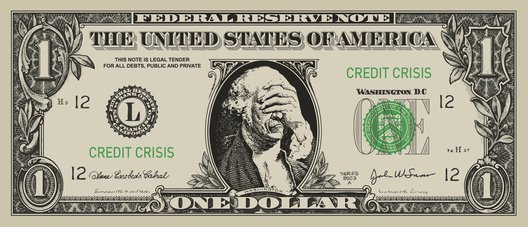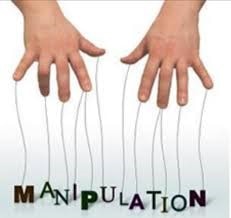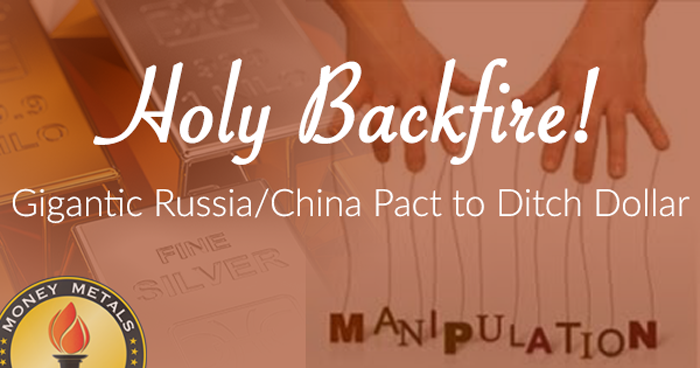Gold and silver prices gained a little breathing room above key technical support levels last week, but the bulls await a catalyst to drive silver prices back above $20/oz and gold north of $1,320/oz.
Perhaps remarks made privately in a speech to wealthy investors by former Fed Chairman Ben Bernanke will be a catalyst.
In a series of recent speeches, Bernanke has given up “Fed-speak” and begun talking in clear terms about what he expects in Fed policy: namely low-interest rates for the rest of Bernanke's “lifetime.” Just don't expect him to speak this unequivocally without his $250,000 speaking fee!
Precious metals may also get a boost should Russia and China reach an accord on a deal for Russia to send natural gas south to China rather than west to Europe. The agreement appears imminent and has ominous implications for the U.S. dollar. More on these important events below...
“De-Dollarization” May Officially Begin This Week
The conflict in Ukraine and the sanctions imposed mutually between the U.S. and Russia get plenty of press coverage. The U.S. has frozen the assets of a handful of high-level Russian officials, and the U.S. no longer has access to Russian rockets with which to launch satellites.
Investors might have the impression nothing of real consequence has happened thus far. Certainly, a military conflict involving the U.S. and Russia seems a remote possibility.
But outright wars aren't the only things to fear. The consequences of other developments could be just as profound, even if nobody is talking about it on CNBC.
In response to U.S. sanctions, Russian First Deputy Prime Minister Igor Shuvalov called a special meeting on April 24th. Experts from the energy sector, banks, and government officials discussed the implementation of a plan that has been in development for some time -- the “de-dollarization” of Russian exports. Government sources there say Russian banks are ready to handle large transactions in rubles rather than U.S. dollars.
Russia is the world's largest exporter of natural gas and the second-largest exporter of oil. Accepting payment in rubles, or another currency such as the Chinese yuan would represent a direct assault on the hegemony of the U.S. Dollar -- the “petro-dollar.”

Until now, virtually every transaction for oil or gas required payment in dollars -- regardless of which parties around the world were involved. The additional demand for dollars has provided an enormous boost to its value over the decades.
That privileged status may be about to end. Recent financial bullying by the U.S. piled on top of relentless efforts to devalue the dollar and suppress interest rates on federal borrowing has pushed Russian officials to declare enough is enough.
Vigilant investors will note that the latest international capital flow report from the U.S. Treasury shows Russia liquidating 20% of its holding of U.S. debt in a single month. Gazprom, the state-owned energy company, recently issued bonds denominated in yuan.
And a massive -- and revolutionary -- natural gas deal with China is just about ready for signature. It appears events in Ukraine are driving Russian officials to finally strike a bargain after 10 years of haggling. Most expect Vladimir Putin will consummate a 30-year contract when he visits Beijing this week. The 38 billion cubic meters of gas involved would be paid for in rubles or yuan -- not dollars.
London Silver Fixing to End in September
The member banks responsible for establishing the daily benchmark silver price -- the London Silver Fixing -- are throwing in the towel. Starting in September, the “fix” price, which has been established each morning during the trading week for more than 100 years, will no longer be set. Miners, industrial users of silver, and all manner of other organizations will have to find another benchmark to use in contracts.

The practice of having a small group of elite banks collaborating to set such an important price has drawn the attention of regulators, and the member banks don't like the scrutiny.
The investigation of LIBOR, a key interest rate set using a similar method, revealed cheating and manipulation as standard practice. After billions of dollars in fines, Deutsche Bank and other members of the silver fixing committee appear to have had enough.
It is difficult to say how the news will impact silver prices. In any event, steps toward more open and fair markets should be welcomed. We'll have to wait to see whether that happens or whether new forms of market rigging fill the void left by the London Fix.

About the Author:
Clint Siegner is a Director at Money Metals Exchange, a precious metals dealer recently named "Best in the USA" by an independent global ratings group. A graduate of Linfield College in Oregon, Siegner puts his experience in business management along with his passion for personal liberty, limited government, and honest money into the development of Money Metals' brand and reach. This includes writing extensively on the bullion markets and their intersection with policy and world affairs.





